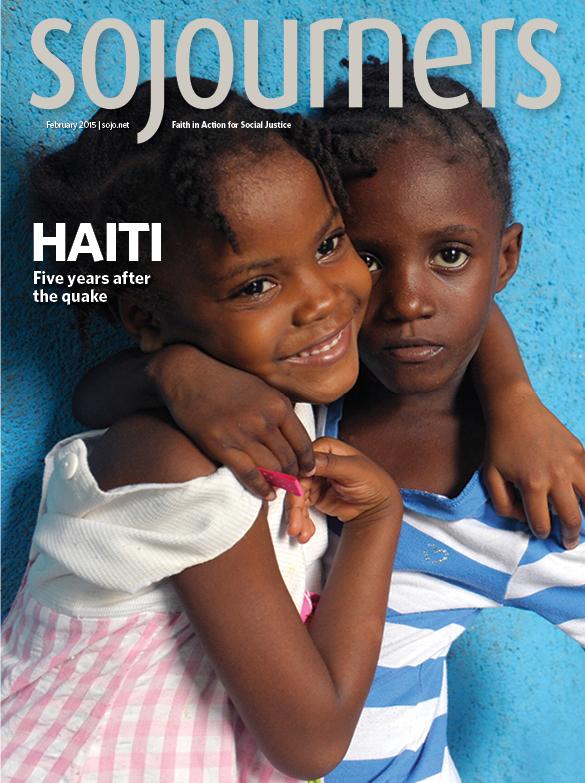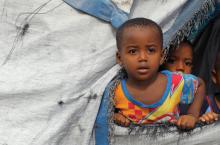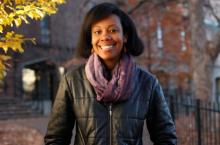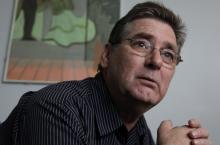
Sojourners Magazine: February 2015
FIVE YEARS AFTER the devastating earthquake that killed more than 300,000 people, Haiti is still a nation struggling to recover. Mired in poverty for generations, it needed a massive response to the disaster, and in the months immediately afterward the international community promised billions in aid. But less than 1 percent of that aid went to the public sector for rebuilding the nation’s infrastructure.
In August, Sojourners editor Jim Rice spent a week in Haiti looking for signs of progress, or at least of hope. Amid the extreme poverty and the crumbled infrastructure, he found examples of Haitians raising their own expectations for the future in partnership with nonprofit organizations such as Compassion International, which has worked in the country since 1968.
Before the earthquake, Compassion’s primary focus in Haiti was on child development. But the disaster imposed its own reality: For children to fully develop, they need schools, and for the social fabric of local communities to recover, small businesses need support. So Compassion broadened its mission, bringing in engineers from outside the country to help the locals rebuild for their children’s future. And it established a program of microloans for small enterprises, 60 percent of which went to women. The program included entrepreneurial training, along with the loans, to improve the possibility of success. Chuck Bigger’s vivid photographs in this issue convey the strength—and the challenges—of the Haitian people.
Also in this issue, in the second of our series of reflections on the Beatitudes, Haitian-born writer Edwidge Danticat explores Matthew 5:4—“blessed are those who mourn”—as she recounts the recent death of her mother and the difficulty of accepting the comfort of that mourning.
And Houston teacher Casey Fleming writes that while she’s confident in bringing her passion for feminism to her ninth-grade students, she worries, while pregnant with a son, about how to raise a good male. “I ask all the good men I know, and they give me the same answer: ‘He’ll need a mentor.’”














